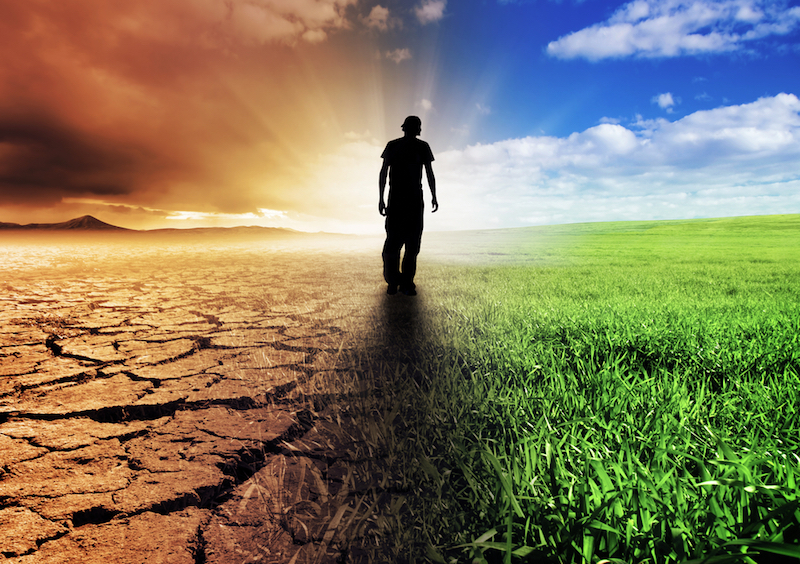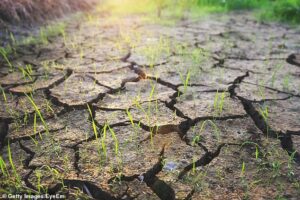
This week, as about 100 world leaders gather to attend the 76th session of the United Nations General Assembly (UNGA 76), a call for rich countries to urgently scale-up assistance to help Africa address the twin challenges of climate catastrophe and impact of the COVID-19 pandemic is required.
With the largely successful vaccination campaign in most of the rich countries and the recent event in Afghanistan, there is a tendency that the need to help Africa address the impact of COVID-19 and get on the path of green and climate-resilient economic recovery could be relegated in the agenda of the world leaders.
Only recently, because of the unprecedented floods in Western countries, including Spain, Germany, and the United States of America, rich countries are beginning to awake to the devastating impact of climate change and the need for emergency measures to deal with climate change-induced loss and damage within their territories.
However, Africa, the Small Island States and many poor countries around the world have long been living with the crippling impact of climate change and much of this impact has not been fully appreciated by the rich countries, who are mostly responsible for the change of the climate.
Dangerously-epic proportions
Indeed, the African climate change context had passed dangerously-epic proportions. Nigeria, for example, has witnessed large scale and unprecedented flooding in the past five years.
The International Federation of the Red Cross and Crescent Societies reports that in September 2020 alone, torrential rainfall, river floods, and flash floods affected 192,594 people across 22 states in Nigeria (including 826 injuries, 155 fatalities, and 24,134 displacements). Little, if any of this, was reported by international news agencies.
An estimated 27 to 53 million people in Nigeria might have to relocate with an (0.5 m) increase in the sea level. Sea level rise is threatening other low-lying countries in Africa, with research suggesting that cities like Abidjan, Cape Town, and Dar es Salaam will be totally submerged with (1.0 m) global sea level rise.
At the same time, oil and diamond-mine infrastructure in coastal African countries worth trillions of dollars are very susceptible to sea level rise and coastal erosion.
Climate change is also causing a decrease in productivity of many staple food crops in Africa. About 86 per cent of Africa’s agriculture is rain-fed, implying that even moderate variations in rainfall, temperature and precipitation patterns could have immediate impact on agricultural production.
Analysts determine that climate change will reduce crop productivity by up to 20 per cent, 30 per cent and, in some cases, 50 per cent over the next 20 or 30 years. Again, the anticipated loss runs into several billions of dollars and the situation is bound to worsen food and other dimensions of insecurity in Africa.
African citizens and governments are aggrieved by the fact that they are being forced to bear the disproportionate impacts of COVID-19 and climate change, neither of which they have caused. In less than three days, an average American citizen emits as much carbon as an average person from Chad or Niger Republic does in one year. Such is the huge asymmetry in the West’s culpability for climate change.
According to recent preliminary estimates, the total economic impact of climate impact, which has been worsened by the COVID-19 pandemic, could cost Africa $200 billion annually by 2070. The real number may well be far beyond that.
For example, a study done by U.K.’s Department for International Development (DFID), now merged with the Foreign and Commonwealth Office (FCO), indicated that climate change could cost Nigeria alone $460 billion by 2050.
Climate change and the COVID-19 pandemic
The impact of climate change in Africa has been exacerbated by the COVID-19 pandemic. Although case fatality rates for COVID-19 have not been as much, as originally feared at the outbreak of the pandemic in early 2020, the social and economic impact of COVID-19 in Africa has been devastating and potentially long-lasting.
Economies in Africa were growing at about 3 per cent GDP before COVID-19, but they are now projected to suffer between 2 per cent and 8 per cent recession as a result of the pandemic.
The African Development Bank indicates that the continent’s economy will contract between $173.1 billion and $236.7 billion in 2020/2021. The region is further expected to witness inflation of up to 5 per cent, alongside a dramatic fall in remittances and Foreign Direct Investment (FDI) in 2021 and beyond.
The same AfDB sources indicate up to 30 million jobs could be lost and between 28 to 49 million people could be pushed into extreme poverty on the continent.

Climate Change and COVID-19 have indeed put Africa in the eye of the storm and many of the governments on the continent have no idea how to recover from the worst recession that has befallen them in more than half a century.
Many African countries have been stretched to their limits in terms of financial and socio-economic resilience. The debt profile of many of these countries has risen dramatically and in many cases to levels that are widely considered as unstainable.
Viewed in this way, one can see that climate change and COVID-19 have put future generations of Africa in debt to rich countries.
African citizens and governments are aggrieved by the fact that they are being forced to bear the disproportionate impacts of COVID-19 and climate change, neither of which they have caused. In less than three days, an average American citizen emits as much carbon as an average person from Chad or Niger Republic does in one year.
Such is the huge asymmetry in the West’s culpability for climate change. Yet the West has grown accustomed to offering warm words and promises, while Africa is being strangulated by climate change.
At the same time, the global transition to the green economy may also leave Africa worse off, with several millions of job losses and trillions of dollars worth of oil and gas reserves that will have to be left in the ground in order to meet global carbon emission cut.
Given the role of rich countries in imposing the risk of climate change and COVID-19 pandemic on Africa, it is arguable that 50 per cent of the projected $200 billion cost of climate change to Africa should be borne by rich countries. This would imply that rich countries owe Africa at least $100 billion for climate related loss and damage and several billions to help boost recovery from the COVID-19 pandemic.
In United Nations General Assembly meeting in November 29, 1967, African foremost diplomat, Avird Pardo helped to lay the foundation for the present-day international cooperation and management of the world sea, when in his historic speech at the floor of the United Nations General Assembly, he urged delegates to consider the resources of the oceans beyond national jurisdiction as “the common heritage of mankind”.
This week, Africa needs another “Avird Pardo moment” in the UNGA meeting. The United Nations General Assembly should rise to reaffirm that climate change is a common concern for mankind and that Africa deserves, not handouts, but generous compensation and meaningful investment to help it address the impact of climate change imposed on it by the rich countries.
At the same time, the UN should provide a commitment that the voices of those who are disproportionally suffering from the impact of climate change will not be marginalised in the forthcoming UN COP26 climate talks in November, for there are already strong indications that unequal vaccine access, rising travel and accommodation costs, as well as high rates of COVID-19 infection might limit the participation of African countries, among others, in global climate talks at the 26th Conference of the Parties.
Africa is already showing climate ambition
To be sure, Africa is not folding its arms and waiting for the rest of the world to bail it out. Across the continent, there are many signs that African governments are willing to take strong action on climate change.
Nigeria has recently submitted a revised Nationally Determined Contributions that promises 20 per cent Green House Gas emission reduction by 2030. Several other countries like the Gambia, Congo, Malawi, Namibia and Liberia have also submitted revised NDCs.
Nigeria has raised $60+ million in green bonds; the country has also strengthened its 2030 emission targets with specificity on addressing emissions reductions from the waste sectors and increasing conditional contributions.
Malawi and South Africa have developed a fund to finance green growth projects, while Rwanda has created its $11 billion, 10-year Climate Plan, among others.
However, Africa has received very limited financial support for its climate recovery efforts beyond warm words, more so when they are being asked to sacrifice their development aspirations to help meet global carbon targets.
A new green deal for Africa worth billions is needed to encourage Africa to leave their oil in the ground and embrace green agriculture, renewable energy and green transportation, all of which can provide strong economic advantages to the continent.
There has been far too much warm words, UNGA should mark a key moment for action with substantial pledges made by the rich countries to offer investments that will promote green and climate resilient recovery for Africa.
By Chukwumerije Okereke is Director of the Centre for Climate Change and Development at Alex Ekwueme Federal University, Ndufu-Alike, Nigeria; Email: Okereke.chuks@gmail.com













